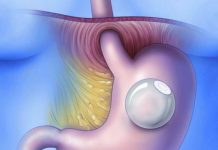If your doctor has asked you to have an echocardiogram performed, he or she probably suspects there may be a problem with your heart’s functioning. This is a serious concern and should not be taken lightly.
Here you’ll learn more about the purpose and procedures associated with an echocardiogram.
What is an Echocardiogram?
When you have an echocardiogram done, sound waves are used to create an image of your heart at work.
Physicians can use these tests to see for themselves how well your heart is doing in terms of beating and pumping blood properly. The images created by the sound waves allow the physician to identify any problems so they can be treated immediately before becoming worse.
Are There Different Types of Echocardiograms?
Physicians can use a number of types of echocardiograms depending on the needs of their patients. One of three kinds is normally chosen. The standard type is known as a transthoracic echocardiogram.
The transducer (the device which produces the sound waves and records the echo) is pressed against your chest. If the physician needs a more up-close view of the beating heart, a transesophageal echocardiogram may be ordered.
In this procedure, the transducer is guided through a tube down your throat and esophagus so a clearer picture can be obtained. Sometimes the physician needs to see your heart working when you are engaged in strenuous activities.
At this time, he or she may ask for a stress echocardiogram. If your health permits, you may be required to exercise on a treadmill or stationary bike and the transducer is used before and after the exercise (cardiac stress testing). For other patients, medication is used to “stress” the heart.
Are There Any Risks Involved with Echocardiograms?
With any procedure, some type of risk may be involved. With an echocardiogram, the risks of having the test are minimal compared to the possible health consequences of not having or of delaying the test.
You may have some soreness either on your chest or in your throat after having the first two types of echocardiograms performed.
If you have the “stress” test done, you may experience an irregular heartbeat for a short time and the medication used to induce the state of stress has caused headaches in some patients but no serious risks are involved.
Where are Echocardiograms Performed?
In some cases, your echocardiogram will be performed in your doctor’s office. Other times, you may need to visit your local hospital to have the test completed. After the echocardiograph is evaluated, you may be referred to a cardiologist for further treatment.












